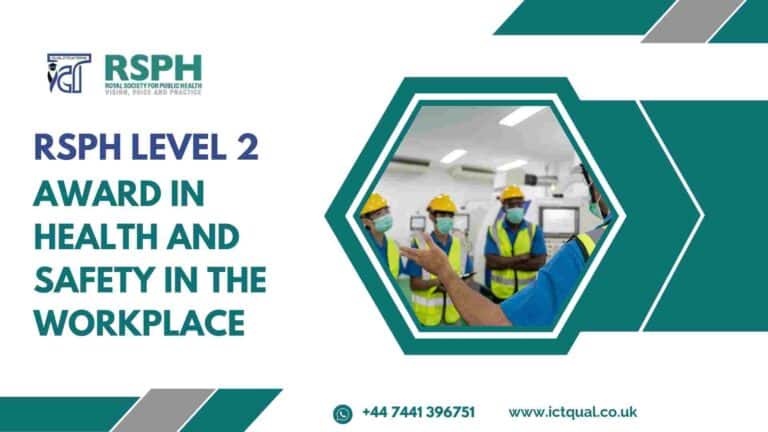In the realm of early childhood education, the Qualifi Level 2 Diploma for the Early Years Practitioner stands out as a vital qualification for those dedicated to nurturing young minds. This diploma provides a comprehensive foundation for individuals aspiring to make a positive impact in the early years sector, covering essential skills and knowledge required for effective practice. Whether you are starting your career in the early years of education or looking to enhance your professional credentials, this diploma is an excellent stepping stone toward achieving your goals.
The Qualifi Level 2 Diploma for the Early Years Practitioner is designed to equip learners with the fundamental skills and knowledge needed to support the development and well-being of young children in various educational settings. This qualification focuses on practical skills and theoretical understanding, preparing individuals to work effectively as early years practitioners, assistants, or support staff.
Individuals from other sectors who are passionate about working with young children and wish to transition into the early years education field.
The Qualifi Level 2 Diploma for the Early Years Practitioner is a valuable qualification for anyone passionate about early childhood education and eager to make a meaningful difference in the lives of young children. With its comprehensive curriculum, practical focus, and emphasis on safeguarding and child development, this diploma provides the essential tools needed to support and nurture the next generation. Whether you’re just starting out or looking to enhance your skills, this qualification is a significant step towards a rewarding career in early years education.
The Qualifi Level 2 Diploma for the Early Years Practitioner is a foundational qualification designed for individuals pursuing a career in early childhood education. This diploma provides essential training for those who aspire to work effectively with young children in various educational and childcare settings. The course covers a broad range of topics, including understanding the pivotal role of the Early Years Practitioner, the factors influencing communication in the workplace, and the dynamics of working relationships within early years settings. Additionally, it emphasizes the importance of Continuing Professional Development (CPD) to maintain and enhance professional skills. Through a combination of theoretical knowledge and practical experience, learners will acquire the skills needed to support children’s development, ensure their well-being, and foster positive interactions with families and colleagues. This qualification is ideal for aspiring practitioners, current assistants, and career changers seeking to make a meaningful impact in early years education.
The Qualifi Level 2 Diploma for the Early Years Practitioner consists of 13 mandatory units of 37 credits for the completed qualification.
Mandatory Units
| Sr# | Unit Title |
|---|---|
| 1 | Roles and responsibilities of the Early Years practitioner |
| 2 | Health and safety of Infants and young children in Early Years Settings |
| 3 | Equality, diversity and Inclusive practice in Early Years Settings |
| 4 | Safeguarding, protection and welfare of Infants and young children in Early Years Settings |
| 5 | Understand how to support children’s development |
| 6 | Support care routines for infants and young children |
| 7 | Support the planning and delivery of activities, purposeful play opportunities and educational programmes |
| 8 | Promote play in an Early Years Setting |
| 9 | Support well-being of infants and young children for healthy Llfestyles |
| 10 | Support infants and young children to be physically active |
| 11 | Support the needs of infants and young children with Special Educational Needs and Disability |
| 12 | Promote positive behaviour in Early Years Settings |
| 13 | Partnership working in the Early Years Settings |
| 14 | Support the needs of the child in preparing for school |
This course is designed for:
1. Aspiring Early Years Practitioners
If you are looking to start a career in early childhood education, the Qualifi Level 2 Diploma provides a solid foundation. It equips you with the fundamental skills and knowledge required to work effectively with young children in nurseries, preschools, or childcare settings. This diploma serves as a gateway to entering the profession and establishing a career in early years education.
2. Current Early Years Assistants
For individuals already working as early years assistants or support staff, this diploma is an excellent way to formalize your existing skills and knowledge. It enhances your understanding of child development, safeguarding, and effective practice, which can lead to increased responsibilities and career advancement within your current role.
3. Career Changers
If you are transitioning from another field and have a passion for working with children, this diploma offers the necessary training and qualifications to enter the early years sector. It provides a comprehensive introduction to early years practice, making it easier to shift careers and start working in a role focused on supporting young children.
4. Parents and Caregivers
Parents or caregivers who are deeply involved in childcare may find this diploma beneficial for gaining a deeper understanding of child development and effective educational practices. It enhances your ability to support your own children or work in a professional capacity with other children, enriching your parenting or caregiving approach.
5. Students and Graduates
Students or recent graduates from related fields, such as education or social care, who are looking to specialize in early years education will find this diploma useful. It complements academic qualifications with practical skills and knowledge, making you a more competitive candidate for roles in early childhood settings.
6. Community Volunteers and Support Workers
Individuals involved in community work or volunteer roles related to children’s services will benefit from this diploma. It provides formal training and recognition of your skills, enabling you to contribute more effectively to your community’s early years initiatives.
Here are the outcomes for each of the listed study units:
Comprehend the Role of the Early Years Practitioner
- Develop a deep understanding of the multifaceted role of the Early Years Practitioner, including the key responsibilities, skills, and knowledge required to support and enhance the development and well-being of young children. This includes creating supportive learning environments, implementing age-appropriate educational strategies, and effectively engaging with children to foster their growth and learning.
Analyze Factors Affecting Communication in the Workplace
- Gain insight into various factors that influence communication within early years settings, such as organizational culture, interpersonal dynamics, and communication barriers. Learn to identify and address these factors to enhance effective communication with colleagues, parents, and children, ensuring a collaborative and supportive working environment.
Evaluate Working Relationships within Early Years Settings
- Understand the dynamics of working relationships in early years environments, including the roles and interactions between practitioners, management, parents, and external agencies. Develop strategies for building and maintaining positive and professional relationships that contribute to a harmonious and effective team, ultimately benefiting the children in care.
Recognize the Importance of Continuing Professional Development (CPD)
- Appreciate the value of Continuing Professional Development (CPD) in the context of early years practice. Understand how ongoing training and professional growth contribute to personal and career development, enhance practice quality, and ensure adherence to current best practices and standards in early childhood education.







